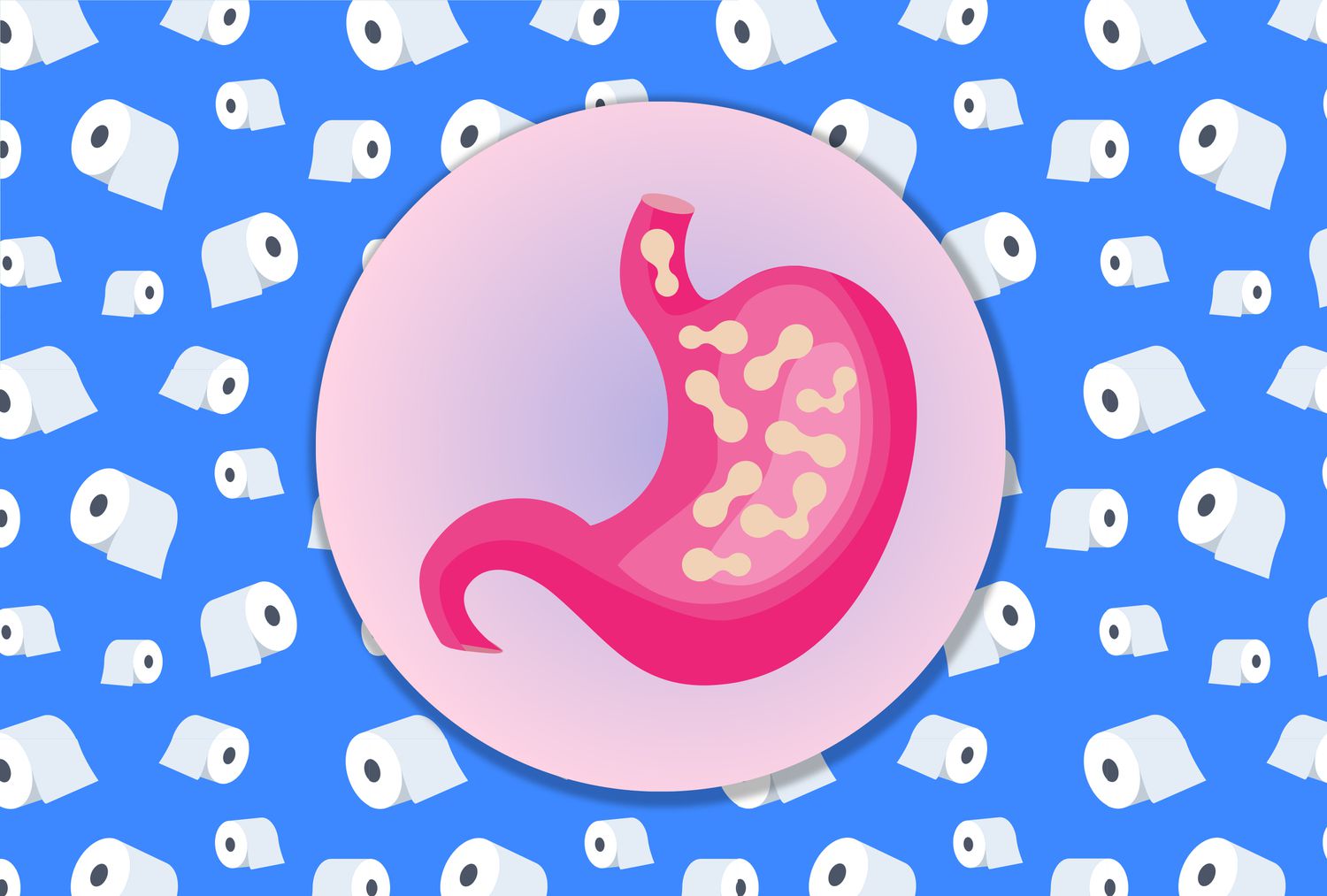
Key Takeaways
- Kefir is a fermented dairy product that has numerous benefits for gut health.
- It provides beneficial probiotics that help improve digestion and make stool easier to pass.
- Kefir can be enjoyed on its own as a beverage or mixed into sweet or savory recipes.
Unlike cream on milk, dairy products might not rise to the top of your mind when you consider which foods speed up your digestion. If anything, dairy has a reputation for backing you up, not helping you go to the bathroom. Many people have long believed that the proteins in cow’s milk slow down bowel movements—a concept some research has suggested may be true.
But here’s some good news: not all dairy products are guaranteed to constipate. In fact, some are strongly linked with helping you poop. The best example? Kefir. This fermented dairy drink (usually found in the dairy case alongside yogurt and milk) has a unique mix of probiotics that may help calm inflammation, diversify the microbiome and even improve lactose digestion. Taken together, these effects can promote healthier, more regular BMs.
Read on to discover why kefir makes a good choice for digestion, plus tasty ways to include it in your diet.
Why Kefir Is the Best Dairy Product to Help You Poop
It May Help Diversify the Microbiome
By now, you’ve probably heard that a healthy gut microbiome (the trillions of bacteria that inhabit your intestines) is key to consistent, comfortable bowel movements. One of the best ways to maintain a thriving microbiome is to “feed” it foods high in probiotics. Kefir certainly fits the bill. “Kefir contains over 30 probiotic strains—way more than most supplements,” says Alyssa Simpson, RDN, CGN, CLT, a digestive health dietitian in Phoenix.
Giving your gut these dozens of beneficial bacterial strains may help diversify the microbiome, creating a healthier gut and improving digestion, says Hanna Kelley, RD, LD, director of health and wellness for the American Dairy Association of Indiana. Research seems to agree, with studies finding a rich diversity of gut microbes helpful for increasing stool frequency.
It May Soften Stool and Promote Gut Movement
The friendly probiotics in kefir may also help prevent constipation by making your stool easier to pass. “The probiotics in kefir … soften stools and regulate gut muscles so they move more effectively,” says Kelley. “This makes bowel movements more consistent and comfortable.” While research is limited, one older study found that people who drank kefir daily for four weeks experienced improved bowel satisfaction scores and had accelerated colonic transit (the time it takes for poop to move through the colon).
It May Help Reduce Inflammation
Chronic inflammation doesn’t just increase the risk of chronic diseases, it can also take a toll on digestive health and contribute to constipation. Fortunately, kefir may help quell an inflamed digestive tract, leading to more frequent bowel movements. “Kefir may reduce gut inflammation, improving gut barrier function—changes that are known to support motility,” says Simpson. She points to a study in which peptides, bioactive compounds and probiotic strains in kefir positively affected inflammation and intestinal permeability, which is important for nutrient absorption and preventing harmful substances from entering the bloodstream.
It May Aid in Lactose Digestion
Diarrhea is often the chief symptom of lactose intolerance, but in about 30% of cases, it manifests with constipation. If your intolerance causes you to get backed up, you might want to keep kefir on hand. “Studies have shown kefir may improve lactose digestion for those who are lactose-intolerant but are still looking for dairy’s nutrition and health benefits,” says Kelley. And since kefir is low in lactose to begin with, it can be a helpful dairy product for people who’d like to reap nutrients like protein and calcium without creating unpleasant GI symptoms.
Best Ways to Enjoy Kefir
You can use kefir in many of the same ways as yogurt—but since it’s drinkable, you can start by consuming it as a beverage. Keep in mind, kefir has a strong taste that can take some getting used to. If you find its flavor too potent for solo drinking, you might prefer to use it in recipes. “Add it to smoothies, homemade dressings or even overnight oats to give your gut variety,” Kelley suggests.
Top-Rated Keifer Recipes to Try
Other Strategies to Keep You Regular
Enjoying fermented foods like kefir is just one step among many that can help with regularity. A few additional strategies to prevent constipation include:
- Eat Enough (but Not Too Much) Fiber: Fiber adds bulk and softness to stool, making it essential for regular BMs. Just note that there is such a thing as overdoing it. “Fiber can help, but more isn’t always better—focus on the types your gut tolerates, introduce it slowly and listen to how your body responds,” says Simpson. Ideally, aim for 25 grams of fiber per day for women and 38 grams for men.
- Stay On Top of Hydration: According to Simpson, dehydration is a common culprit behind constipation. To hydrate adequately, aim for about 11.5 cups of fluid per day for women and 15.5 cups for men.
- Get Plenty of Activity: Research shows that regular exercise can be a helpful treatment for constipation. Whether it’s taking your dog for a walk, mowing the lawn or taking a cardio dance class, finding ways to stay active throughout the day can go a long way in keeping you regular.
The Bottom Line
When it comes to helping you poop, not all dairy products are created equal. Among the many dairy products, kefir has the best track record for getting bowels moving. This fermented beverage provides gut-healthy probiotics to support optimal digestive health. Enjoy kefir as a stand-alone drink or add it to sweet or savory recipes for a tangy, gut-healthy boost.
